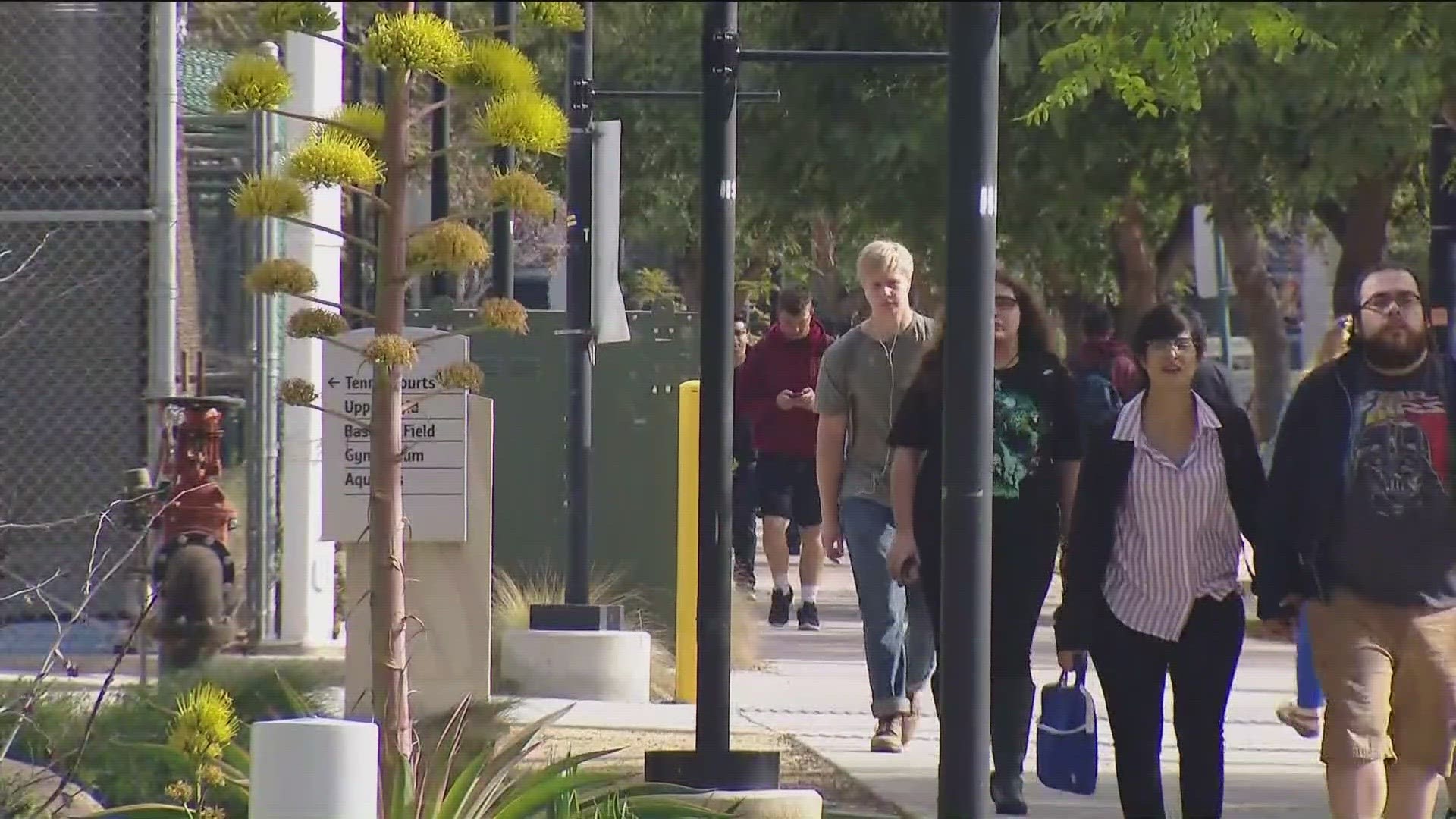SAN DIEGO — There are two bills at the state and federal level that are both designed to ensure Latino students are able to not only go to college but succeed.
"If we invest in our diverse population, in this case through education, that will pay dividends," said State Assemblymember David Alvarez (D-San Diego), who introduced Assembly Bill 91 earlier this year.
If passed, AB91 would make it easier for students who live in Mexico to attend community college in California.
Every day, an estimated 7,000 students grades K through college cross over from Mexico to attend school in our region.
The bill would create a five-year pilot program allowing low-income students who live in Mexico within 45 miles of the California border to pay in-state tuition to attend community colleges in San Diego and Imperial Valley counties.
The difference in cost is significant.
In-state tuition is $46 per unit, compared to the average out-of-state tuition which is $300.
“We do not want that to be a barrier for the students. We want them to feel like they can continue to have their education and they can actually be a member of society who is productive,” said Alvarez.
AB91 would allow up to 200 students at each community college campus to take advantage of in-state tuition.
Alvarez says giving students this opportunity helps contribute to our workforce and economy.
As for opponents who say it's unfair, Alvarez disagrees, saying with Mexico so close, it's already a part of our community.
"It’s a very unique situation and we want to acknowledge and recognize that it’s unique. There are people who believe that we should only fund the education of people who live in California, and I say to that we absolutely should and we are and we'll continue to do so," said Alvarez.
Alvarez isn't the only one pushing for more educational opportunities for Latino students.
At the federal level, Senator Alex Padilla (D-California) and Congressman Joaquin Castro (D-Texas) just introduced the HERE Act, legislation that aims to create a $125 million grant program to fund partnerships between Hispanic-serving colleges and school districts with significant Hispanic and Latino enrollment.
The goal is to provide more resources for those students to help guide their way into college and ensure they graduate.
"There's a lot of first-generation students that don't have that multi-generational experience within the family to guide them with what course work they're taking in high school, the college application process, let alone financial aid," said Padilla.
The HERE Act is still in its early stages.
Meanwhile, AB91 is on the Governor's desk.
He has until October 14th to sign it.
Both lawmakers say for them, and especially during Hispanic Heritage Month, this type of legislation is personal.
“As the first Latino to represent California in the Senate, it is a tremendous honor and both the opportunity and responsibility is not lost on me,” said Padilla.
“I'm proud to be celebrating Hispanic heritage and I'm proud that I'm working on legislation that will continue to uplift the community in that way,” said Alvarez.
Padilla and Alvarez said both bills have bipartisan support.
WATCH RELATED: Proposal could allow Tijuana college students to pay in-state community college tuition

